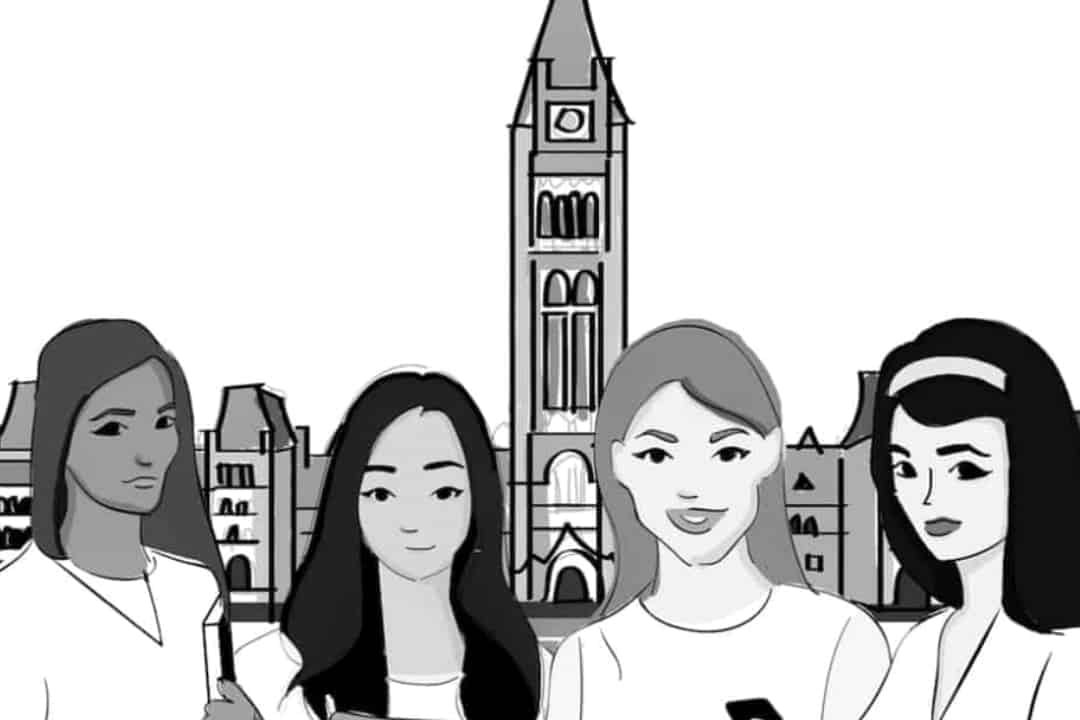On March 9, U of T’s Women & Gender Studies Institute (WGSI) hosted a virtual lecture, titled Defend the Sacred: Reconnection is Resistance, with tribal attorney Tara Houska. Houska is a member of Couchiching First Nation, a Saulteaux First Nation Band.
Houska was formerly the Native American Advisor to American politician Bernie Sanders, and has written for news outlets such as The New York Times and CNN. She also co-founded Not Your Mascots, an organization committed to educating the public about the representation of Indigenous people.
Houska’s lecture, which was a part of U of T’s celebration of International Women’s Day, was co-hosted by Wafaa Hasan, an assistant professor at the WGSI. The lecture focused on the topics of identity, Indigenous advocacy, and climate injustice.
A “wake up call”
Houska began the event by talking about a recent increase in global conflict, marked by events such as the 2021 US capitol insurrection, protests surrounding George Floyd’s murder by Derek Chauvin, the increasing effects of climate change worldwide, and the Free Palestine movement.
Houska believes that these events constitute a global “wake up call.” She used the example of the Mississippi River tar sands pipeline — a pipeline that transports tar sands from Canada to America and has the potential to leak into and permanently contaminate wetlands — to highlight that actions which benefit some groups often sacrifice others’ standard of living.
Houska also pointed to COVID-19 as a reminder that “Mother Nature can indeed shut down [society] and the framework that human beings have created.” She noted that, while most people view the world through an economic lens, Indigenous people instead focus on nature and the role that ecosystems play in our everyday lives.
To combat these conflicts, Houska urges people in power to find alternative problem solving methods, mentioning that she does “not believe we’re going to solar panel or wind turbine our way out of the climate crisis.” Houska also emphasized the importance of actions from those who aren’t in power, urging us all to “find empathy for one another and to measure success from what we create.”
Mistreatment of Indigenous populations
During the lecture, Houska explained that, because Indigenous land holds 80 per cent of the world’s remaining biodiversity, governments around the world will “[try] to grab what remains of those places.”
This is especially evident in Canada. Houska referenced the 2021 protests in Fairy Creek, BC, where an Indigenous-led blockade protested the logging of forests in Vancouver Island. “Like other struggles, it doesn’t just end with one iteration — the attacks on the forest keep coming back,” said Houska.
During the lecture’s question and answer period, I asked Houska if she feels connected to other Indigenous people around the world. She replied, “Sharing spaces with Indigenous peoples from around the globe is indescribable… hearing others’ experiences, which are oftentimes very familiar, really hurts.”
Houska added that opportunities such as lecturing at universities are valuable in sharing different perspectives in comparison to international meetings she’s participated in, which she believes “lack teeth and efficacy.”
Personal journey
Last month, the US Supreme Court rejected a case by the Dakota Access oil pipeline operator to avoid a mandated environmental review. This was a case in which Houska helped campaign against the pipeline, so it represented a significant victory.
However, Houska acknowledged that advocating for Indigenous peoples and for climate justice has not been without its challenges. She noted that many activists are either facing charges, felonies, or are imprisoned for defending their rights. For her part, Houska expressed surprise over “[how she hasn’t] been kicked out of the [American Bar Association] yet.”
Despite these challenges, Houska said that “people who have been so disenfranchised or silenced are finding each other, and standing up for what’s right.”
“There’s all kinds of ways to get involved. It’s really important to figure out what you want to contribute,” she added. When you’re doing advocacy work, she said, you shouldn’t feel guilty about taking moments to look after your own well-being.


